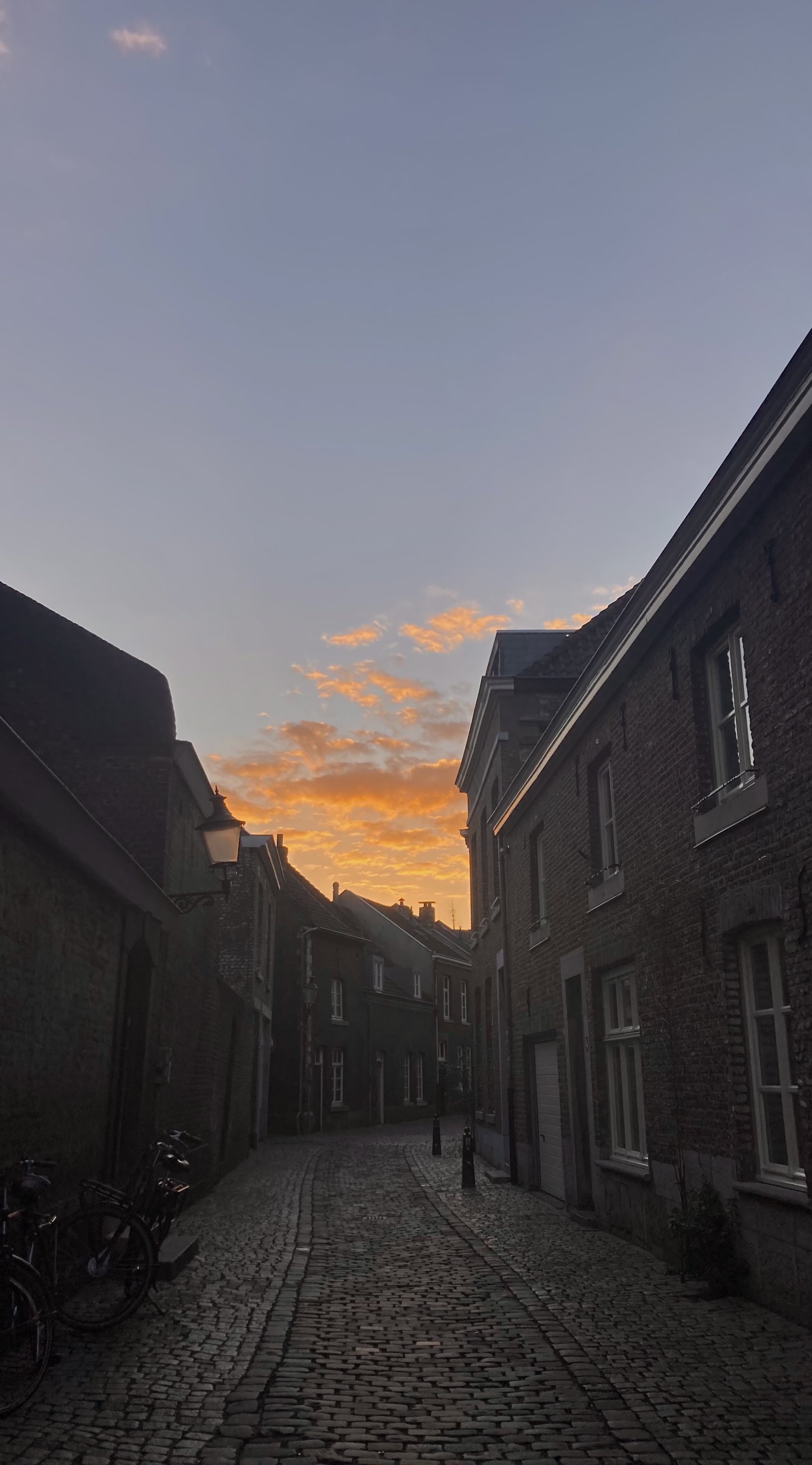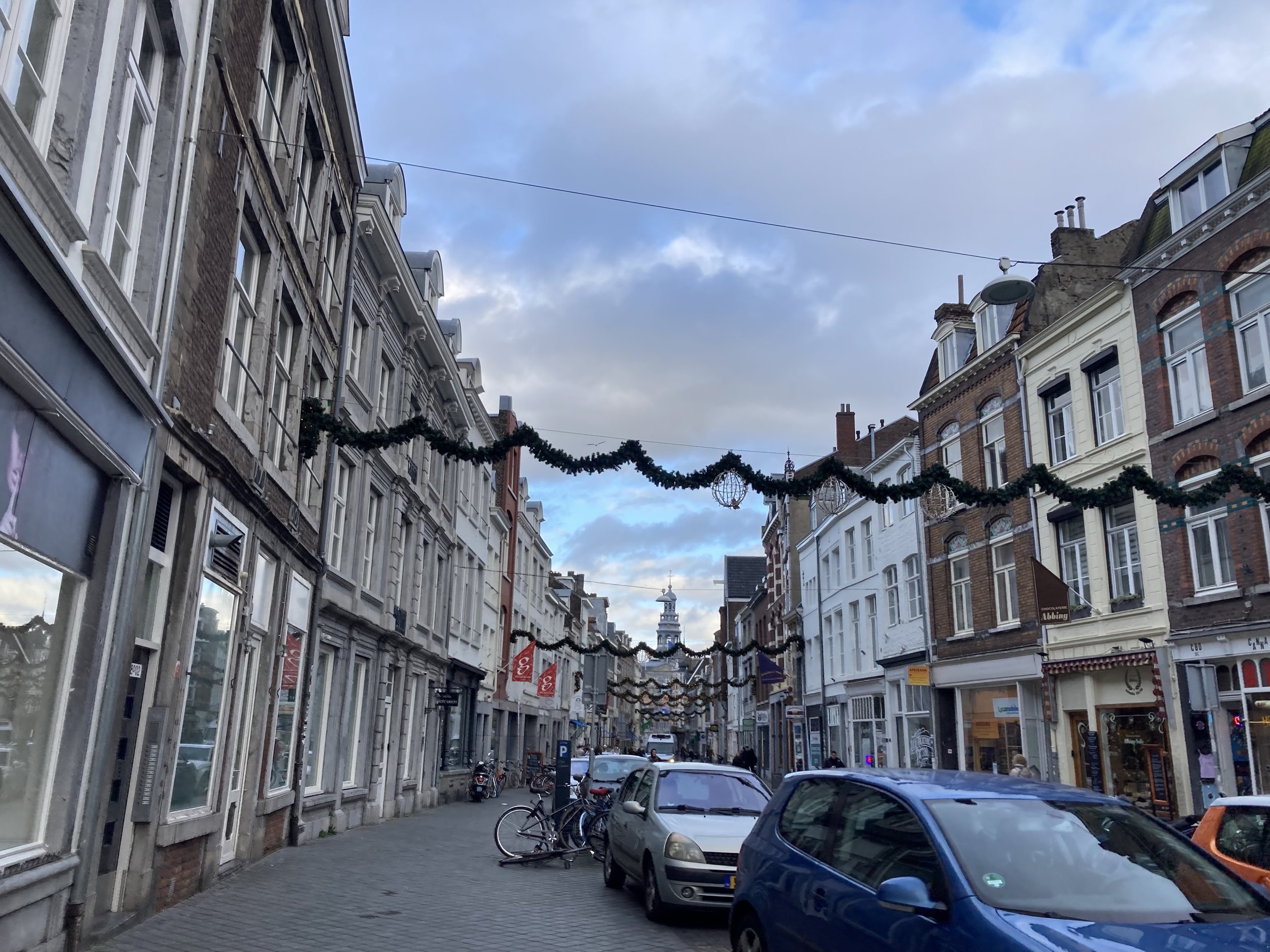Photos courtesy of Helen Roane ‘23
Helen Roane ‘23, an East Asian studies major, is studying abroad in the Netherlands at Maastricht University. Since her arrival in Europe, she has traveled to Brussels, Bruges, Utrecht and Amsterdam.
By Lauren Cincotta ’25
Staff Writer
As the COVID-19 pandemic stretches into another year, perpetual changes to the norm have become a regular part of life. Students looking to participate in a study-abroad program for the Spring 2022 semester had to be willing to adapt to an evolving COVID-19 situation in addition to adjusting to studying in another country. Some destinations and programs have not yet reopened and others are operating with restrictions.
According to the McCulloch Center for Global Initiatives’ study abroad website, “[the center] will continue to consider the health and safety conditions and any travel restrictions in locations for our approved study abroad locations. We will support study abroad provided students are vaccinated for COVID-19 per CDC recommendations, the study abroad programs are running, and students are able to access visas, flights and consular services.” While study abroad initially returned in Fall 2021, the Spring 2022 semester has still brought challenges for those seeking to travel.
One of the first challenges that Olivia Wilson ’23 faced when she began applying for study abroad was that some countries had closed their borders, making travel impossible.
“I originally wanted to go to New Zealand. My plan was to attend the University of Otago on the South Island as an international student, but they closed their borders and stopped processing visas, so that didn’t work out,” she said. She was also accepted to a program in Costa Rica, but there was no guarantee that the program would include an in-person experience, so Wilson decided to look elsewhere.
Currently, Wilson is in Copenhagen, Denmark, with an American program, the Danish Institute for Study Abroad. She is studying sustainability programs in Europe and their impact on the environment. Despite being in a different country than she expected, Wilson said that her experience so far has “exceeded [her] expectations.”
While Wilson was worried about the virus, she explained that her program has worked hard to keep everyone safe.
“DIS is following Denmark’s protocols, so masks are no longer required, although they were at the beginning of the semester. It’s recommended to get tested twice a week,” she continued, noting that rapid tests are easily accessible and free. If a student tests positive for COVID-19, the program provides hotel accommodations and a food stipend, and after four days, the student can return to their regular housing. “Other than that, it’s normal life,” Wilson concluded.
Helen Roane ’23, currently in the Netherlands, also experienced challenges when it came time to apply to study abroad. As an East Asian studies major, Roane had hoped to spend her spring semester in China. “After an advising meeting in September, they helped me find some alternative programs due to the fact that China was still not accepting student visas,” she explained. This caused Roane to reevaluate her plans. “Instead, I decided to go somewhere that I would be able to work on my other major [of international relations],” she said.
The program at Maastricht University suited this interest, and Roane was able to squeeze in an application before the deadline. Before she was set to begin her semester abroad, the Netherlands imposed a mandatory 5-10 day quarantine on all travelers coming in from high-risk countries, including the United States. This initial quarantine caused her program to cancel a planned trip to Berlin. Still, in the weeks since her arrival, Roane has been able to travel to Brussels, Bruges, Utrecht and Amsterdam.
While the path to their study abroad experiences might have been different than students in pre-pandemic years, both students are glad they took this opportunity to enrich their educational experiences. Wilson explained that she wasn’t sure if she was going to go at all.
“I was considering staying because I missed my entire second year on campus due to the pandemic. But I was told a lot that studying abroad is a once-in-a-lifetime experience,” she said.
Roane agreed that the once-in-a-lifetime opportunity is worth experiencing. She also expressed that this semester was the right time to pursue a study-abroad experience. “I chose to go abroad now instead of next fall mostly because I wanted to have an entire senior year on campus, and I’m hoping it will be a relatively “normal” senior year,” she continued.
Both students emphasized the importance of devoting time and effort to researching a program before applying.
“In general, I would suggest [starting] early. A little bit at a time goes a long way. Also, reach out to past students who did the same program,” Wilson stated. “Depending on how much independence you want, be more picky about your program. For example, if a program is usually more structured, expect it to be even more structured because of the pandemic. If the program is more independent, expect it to be slightly structured due to restrictions,” she said.
In final parting words, Roane offered that “If someone wants to study abroad, they should totally do it.”




